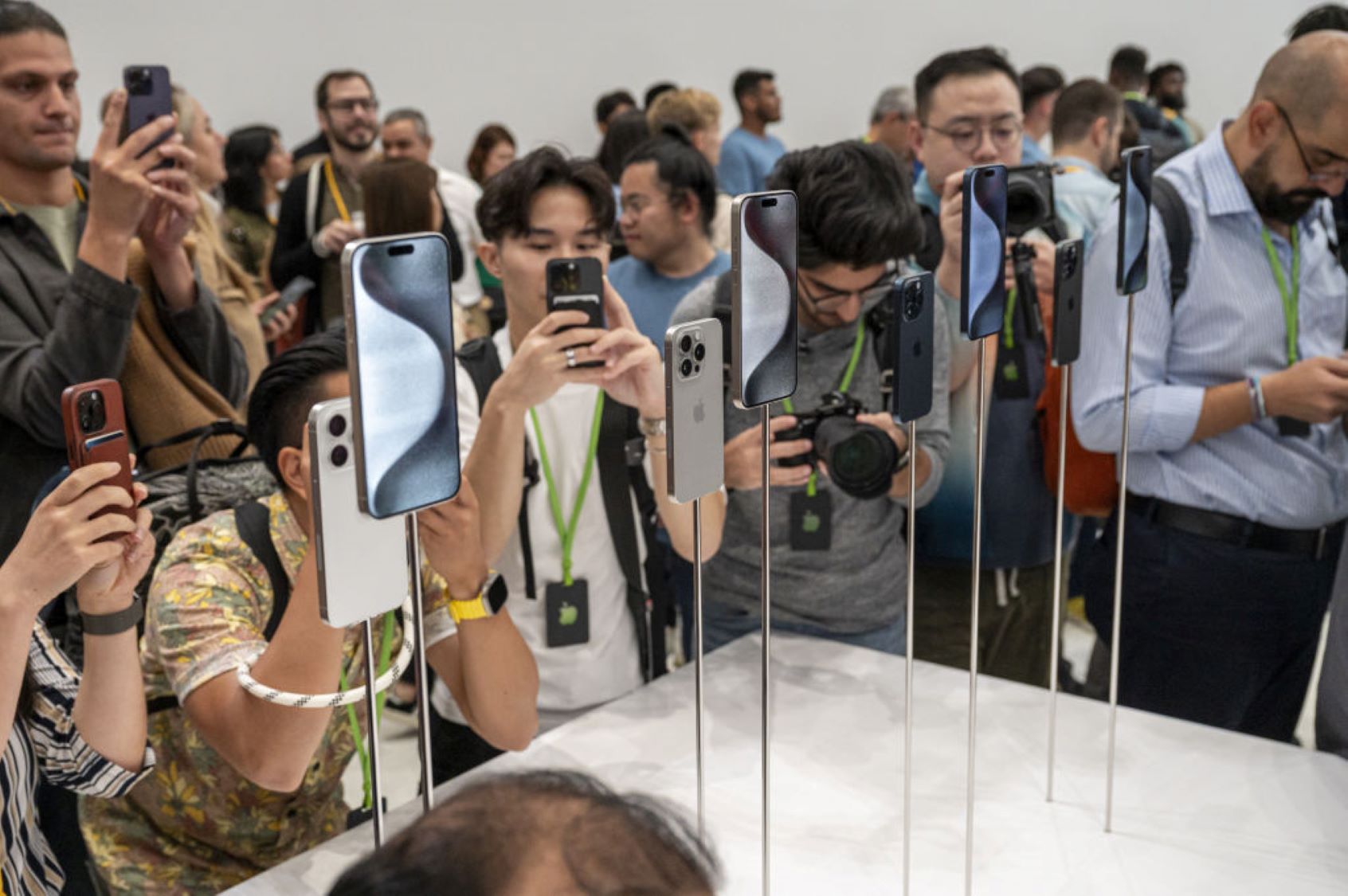China steals the spotlight at Apple's iPhone 15 launch
How will a directive from the Chinese government affect the tech giant?

A free daily email with the biggest news stories of the day – and the best features from TheWeek.com
You are now subscribed
Your newsletter sign-up was successful
The smartest insight and analysis, from all perspectives, rounded up from around the web:
A crisis in China is not what Apple needed on the eve of its latest iPhone launch, said Mark Gurman in Bloomberg. As company leaders prepared to unveil the iPhone 15, Beijing last week began ordering government employees to stop using Apple products altogether, at work or at home, citing cybersecurity concerns. The Chinese government is considering extending the ban across state-owned enterprises as well. “The news erased $190 billion from Apple’s valuation” as investors sized up the potential hit to Apple’s revenue. “The company generates about a fifth of its sales from China, which is also the heart of Apple’s supply chain.” But “anti-Apple sentiment has spread on Chinese social media” in recent weeks as geopolitical tensions intensify. “The iPhone 15 line, with niceties like a titanium frame and enhanced camera, is meant to help pull the company out” of a recent funk. But Apple will need China to pull that off.
This is a many-billion-dollar headache, said Dan Gallagher in The Wall Street Journal. If China indeed extends the iPhone ban to encompass “state-owned enterprises,” that’s about 56 million workers, according to China’s National Bureau of Statistics. Even with 230 million iPhone sales globally each year, losing “56 million would be a notable chunk to take out of the pool of potential buyers.” The direct hit to Apple’s sales from this government directive isn’t the primary concern, said Timothy Green in The Motley Fool. The bigger worry is that the ban could “reverberate” and make other consumers in China shift “away from Apple’s products as well, either because of pressure or simply reading the tea leaves.”
The Week
Escape your echo chamber. Get the facts behind the news, plus analysis from multiple perspectives.

Sign up for The Week's Free Newsletters
From our morning news briefing to a weekly Good News Newsletter, get the best of The Week delivered directly to your inbox.
From our morning news briefing to a weekly Good News Newsletter, get the best of The Week delivered directly to your inbox.
Sales may shrink in China, but they’re growing almost everywhere else, said Tripp Mickle in The New York Times. Fifteen years after unveiling the first iPhone, Apple now claims “about a fifth of the world’s smartphone sales, up from a low of 13% in 2019.” Sales have boomed in China but also in Europe, Japan and India. In the U.S., iPhones “now account for more than 50% of smartphones sold, up from 41% in 2018.” That’s partly because of Apple’s claim on the “coolness” factor prized by young consumers. “Nearly 90% of American teenagers own an iPhone,” according to investment bank Piper Sandler. And retention is unparalleled: A staggering 94% of iPhone customers are likely to buy another one.
Apple is also a victim of its own success, said Dave Lee in Bloomberg. “The quality of Apple’s engineering” has meant that users can hang on to their iPhones for longer than in the old days before needing to upgrade. Apple has recognized this and pivoted to services; it now has “more than 1 billion subscribers to its various offerings,” such as Apple TV+ and Apple Music, which have pushed up services revenue. Still, at its core, Apple remains an iPhone company. The new iPhone 15 line touts a faster chip, better camera, and narrower bezel. “Will that be enough to have people heading out in droves to upgrade? It’s a big ask.”
This article was first published in the latest issue of The Week magazine. If you want to read more like it, you can try six risk-free issues of the magazine here.
A free daily email with the biggest news stories of the day – and the best features from TheWeek.com